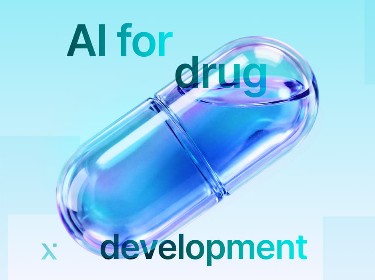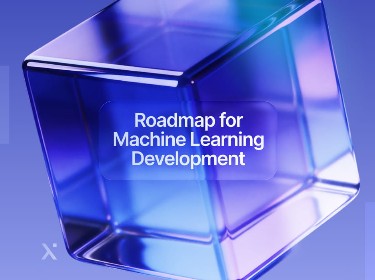Data analytics and artificial intelligence are powerful, standalone technologies that offer significant benefits to businesses across various sectors. When integrated, this combo becomes even more potent and unlocks new levels of efficiency and insight.
Data analytics and AI are poised to take monumental leaps forward. By 2030, market size predictions reveal that data analytics is expected to soar to $745.15 billion, while AI is forecasted to reach $2,025.12 billion.
The most exciting aspect, however, lies in their synergy.
When combining adaptive AI development solutions with data analytics, businesses stand to enjoy faster, more accurate analysis and richer information generation.
Curious to learn more?
Check out our article to discover the top 12 AI tools for data analytics that are making waves in the industry and understand the advantages they offer.
Top 12 AI tools for data analytics
![]()
The leading AI for predictive analytics tools in 2026 and beyond comprise a diverse range of platforms, each with unique features and strengths.
These tools are Tableau, Polymer, Power BI, Julius AI, Akkio, MonkeyLearn, Sisense, Kanaries RATH, H2O.ai, Microsoft Azure Machine Learning, DataRobot, and AnswerRocket.
Let’s explore what sets each of these tools apart.
1. Tableau
One of the most popular data visualization and analytics platforms, Tableau recently introduced two significant features — Tableau GPT and Tableau Pulse.
Tableau GPT was specifically rolled out to streamline key tasks such as data analysis, preparation, and governance. This feature is a result of merging Salesforce Einstein GPT with OpenAI’s enterprise-level ChatGPT technology and Salesforce’s private AI models, and it offers a more powerful and efficient method for managing and interpreting complex data.
Tableau Pulse, on the other hand, is powered by Tableau AI and focuses on improving the user experience. It delivers smart, personalized, and contextually relevant insights directly within the user’s workflow. By utilizing the generative AI capabilities of Tableau AI, Tableau Pulse answers user queries and proactively suggests new questions, enriching the analytical process with automated analytics presented in an easy-to-understand language.
2. Polymer
The Polymer AI for data analytics tool was designed to transform mundane data into a streamlined, powerful, and flexible database.
Polymer empowers spreadsheets with robust AI capabilities and boosts data analysis and comprehension with just a few clicks. Users can just upload their spreadsheets to Polymer, which instantly converts them into easily navigable databases, — and they get immediate access to advanced filtering, sorting, and querying features to manage and analyze their data.
In addition to this, Polymer’s AI capabilities extend beyond simple data transformation. It employs algorithms to automatically identify patterns and relationships within the data that provide insightful visualizations and analytics.
3. Power BI
Power BI offers a range of features that cater to diverse business intelligence needs.
As far as its AI for data analytics features are concerned, the Decomposition Tree Visual, an AI visualization, is good at ad hoc exploration and conducting root cause analysis and empowers users to delve deep into their data and uncover underlying factors and trends.
What’s more, the platform enables users to build their own machine learning models and leverage other AI-powered features for comprehensive data analysis. Power BI also supports various AI for data analytics applications, including sentiment analysis, key phrase extraction, language detection, and image tagging.
4. Julius AI
Julius AI makes use of AI techniques to delve into complex data sets. It leverages machine learning algorithms to not only process and analyze large volumes of data but also to learn from it, continuously improving its accuracy and efficiency in data interpretation. This self-learning aspect of Julius AI enables it to adapt to changing data patterns and trends and provides businesses with insights that are both current and predictive.
Furthermore, its AI for data analytics techniques are capable of identifying subtle correlations and hidden patterns that might elude traditional analysis methods and help organizations uncover insights that can inform more nuanced and strategic decision-making.
5. Akkio
Akkio is an AI for data analytics tool tailored to add significant value to client operations. It offers a unique feature of generative AI and even enables the creation of custom chatbots that allow clients to interact with their data, ask questions, create charts, and gain insights effortlessly, all without the need for coding.
The Akkio AI platform also aids in generating custom client dashboards instantly for any data project. Users simply connect their data and describe their project goals — and Akkio responds by producing an AI-generated report that can, for instance, optimize ad spend, track trends, or cater to other specific needs.
Need a reliable big data consulting and engineering partner? Let’s get acquainted
6. MonkeyLearn
MonkeyLearn serves as a specialized AI for data analytics tool with a focus on text analysis. It offers a suite of AI-driven tools adept at analyzing, categorizing, and visualizing text data, all customized to user-defined parameters.
In its role, MonkeyLearn proves useful for organizations needing in-depth analysis of textual data. The platform melds a user-friendly interface with robust AI algorithms and facilitates streamlined data management and analysis.
Moreover, MonkeyLearn can undertake tasks such as sentiment analysis, topic detection, and keyword extraction. These capabilities are essential for deriving meaningful insights from text sources like customer feedback and social media content.
7. Sisense
Sisense serves a diverse user base by boosting analytics with AI and machine learning and delivering deep insights that integrate seamlessly into various applications.
The platform offers low-code and no-code applications for easy use and appeals to users who prefer simplicity. For developers, Sisense provides flexible tools complete with SDKs and APIs for creating tailor-made solutions.
Users of Sisense can visualize AI and machine learning-enhanced analytics through clear charts and graphs. The platform also supports data exploration with natural language queries, which allows users to ask questions in everyday language and receive insights generated by natural language generation and generative AI technologies.
From consulting to full-cycle development: see how our business intelligence services can transform your data into actionable insights
8. Kanaries RATH
Kanaries RATH is an AI for data analytics assistant designed specifically for exploratory data analysis in the business sector. It enables swift and effective analysis of extensive datasets and presents users with insightful and clear interpretations of visual data.
This software possesses the capability to automatically generate data visualizations, thereby removing the necessity for coding skills. By aiding users in uncovering trends, patterns, and outliers within their data, Kanaries RATH enhances the ability to craft innovative business strategies and identify unique market opportunities.
9. H2O.ai
H2O.ai is renowned for its open-source, in-memory architecture. This AI for data analytics platform is particularly adept at facilitating a broad spectrum of data analysis tasks through its support of numerous machine learning algorithms, including gradient boosting, generalized linear models, and deep learning. Its core strength, though, lies in its scalable design, which ensures efficient handling and analysis of expanding data volumes.
At the heart of H2O.ai’s offerings is the H2O AI Cloud, which was designed to enhance the data analysis process. It streamlines the development and refinement of AI models by incorporating automated features for feature engineering, model validation, selection, and tuning.
10. Microsoft Azure Machine Learning
Microsoft Azure Machine Learning offers an AI for data analytics cloud-based platform that transforms data analysis and specializes in handling diverse and complex data processing tasks.
This solution primarily targets data scientists and machine learning consulting teams and strives to enhance their modeling and data processing skills. Microsoft Azure Machine Learning also integrates with other Azure services and provides businesses with the tools to develop AI solutions tailored to their specific needs.
11. DataRobot
DataRobot helps expedite machine learning model experimentation for data scientists and streamline model operationalization for ML engineers. This acceleration in model building is largely due to its automated machine-learning capabilities, which operate efficiently without the need for constant human intervention.
Notably, DataRobot’s flagship product, the DataRobot AI Cloud, epitomizes the democratization of AI, as it enables individuals without coding expertise to develop machine learning models through an intuitive, point-and-click interface.
12. AnswerRocket
As a generative AI for data analytics platform, AnswerRocket focuses on helping businesses derive insights from their enterprise data efficiently and intuitively.
AnswerRocket relies on artificial intelligence and machine learning to streamline and expedite the process of data analysis. This automation of routine tasks and rapid response to specific queries enhances productivity and improves business outcomes.
Why use AI for data analytics?
![]()
By using AI for data analytics, businesses can gain numerous advantages, namely: greater processing speed, complex pattern recognition, future trend prediction, routine task automation, personalized user experience, operational cost reduction, and more scalable data analysis.
Let’s take a closer look at each of these benefits.
Greater processing speed
Integrating AI into data analytics significantly boosts speed by automating complex data processing tasks that would otherwise take humans much longer to complete. For instance, AI algorithms can quickly sift through terabytes of data and spot relevant patterns and trends in a fraction of the time it would take using traditional methods.
The rapid processing capability of AI is crucial in scenarios where real-time data analysis is essential, such as in financial software development or during emergency response situations.
Complex pattern recognition
AI for data analytics enhances pattern recognition in data analysis by employing sophisticated machine learning models like convolutional neural networks (CNNs), which are particularly adept at identifying patterns in visual data, and recurrent neural networks (RNNs), which excel in recognizing sequential patterns in time-series data.
These AI models can process and analyze vast datasets with a level of detail and accuracy unattainable by human analysts.
Check out our detailed guide to machine learning pattern recognition and its key applications
Routine task automation
AI for data analytics assists in automating mundane tasks such as data cleansing and initial analysis. They also employ advanced algorithms like decision trees and support vector machines for initial data sorting and pattern recognition, thus streamlining the early stages of data analysis.
This not only saves time but also uncovers valuable information that might be overlooked in manual analysis while enhancing the overall quality and depth of the analytical process.
Operational cost reduction
AI’s rapid and precise data processing capabilities minimize the necessity for extensive human involvement.
Thanks to this, organizations have the opportunity to cut down on labor costs, accelerate the entire data analysis workflow, allocate resources more efficiently, and allow their employees to focus on more strategic growth initiatives and more important tasks.
Scalable data analysis
As data volume and complexity grow with the business, AI for data analytics scales up to match these demands. It does so by refining its algorithms to manage larger and more intricate datasets.
Importantly, the machine learning models within these AI systems improve as they process more data and ensure that the quality of data analysis keeps pace with the business’s growth.
How PixelPlex can help
In data analytics, AI tools have become indispensable for uncovering deep insights and driving business innovation — and the top 12 AI for data analytics tools for data analytics discussed in this article are just some of the prime examples of solutions that help organizations achieve superior data-driven results.
At PixelPlex, our team excels in the integration of advanced AI solutions and delivers top-notch data analytics services. We can assist you with the following services and solutions:
- Machine learning development services
- AI consulting services for small businesses
- AI copilot development services
- Enabling real-time data processing
- Custom AI-driven solutions
- Software testing services for your data solution
- Computer vision services and solutions
- Real-time data analytics
- Data visualization consulting
Discover the full potential of the AI and data analytics combo with PixelPlex.
Contact us now and let us propel your business into a future of growth and digital innovation.




